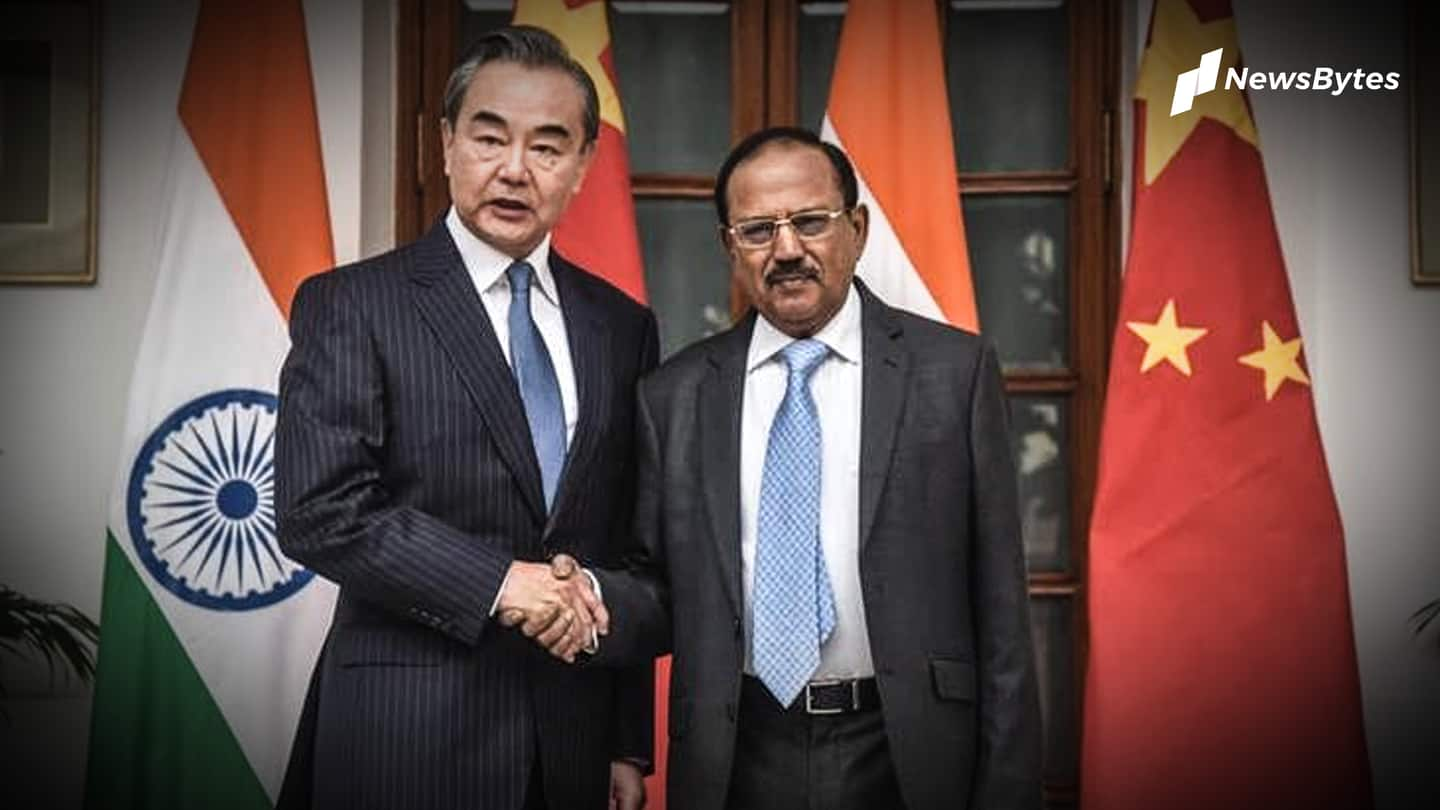
Beijing suggested Doval-Wang talks to ease tensions in Ladakh
What's the story
The conversation between NSA Ajit Doval and China's Foreign Minister Wang Yi last Sunday, which immediately yielded results in the Galwan Valley, was proposed by Beijing, an Indian Express report said on Wednesday.
While India said diplomatic and military channels were appropriate to solve the tensions after the violent face-off, China insisted that Special Representatives of both countries must talk.
Here are more details.
Background
Context: A clash at Galwan forced both countries to talk
India and China had been engaged in a stand-off since May after Beijing objected to infrastructure projects in Eastern Ladakh. In mid-June, the tensions snowballed into a violent conflict wherein 20 Indian soldiers were martyred.
Thereafter, talks were initiated at military and diplomatic levels, with India maintaining that China was the aggressor and wanted to change the status quo along Line of Actual Control.
Call
After military commanders couldn't resolve matter, Doval stepped in
When multiple meetings at Corps Commander level didn't yield desired results, Doval and Wang, both Special Representatives for boundary talks, had a long conversation over the phone on Sunday.
Previously, both of them had met in 2018 and 2019.
In December 2019, they decided to be "frank to each other" on various issues, the mood and rhetoric in their respective countries notwithstanding.
Details
India understood talks at lower levels couldn't resolve the dispute
To note, the military level talks from India were led by XIV Corps Commander Lt. General Harinder Singh, the Working Mechanism for Consultation and Coordination channel was handled by Joint Secretary (East Asia) Naveen Srivastava, and India's Ambassador to China, Vikram Misri, also participated in talks to ease tensions.
Despite this, India agreed to China's persistence thinking talks at lower levels would have limitations.
Minister
Reportedly, Wang's stance during Doklam made him fit for job
The IE report said Wang represented the Chinese side as he, apparently, exerts more influence than any of the previous foreign ministers. Wang became State Councillor in 2018 and is said to be close to Chinese President Xi Jinping.
During the Doklam crisis of 2017, Wang, who was the foreign minister back then, garnered lauds in his country for his strong stance.
Details
Hours after Doval-Wang talks, troops moved back at Galwan Valley
The initial result of talks between the two SRs was seen on Monday when Chinese forces went back by at least one kilometer in Galwan Valley.
A day later, Indian and Chinese troops moved back in PP15 and PP17A (Gogra) in the Hot Springs sector of Ladakh as well.
Reports claimed China also dismantled its structures in these two volatile spots.
Details
Meanwhile, India is firm on continuing infrastructure projects
However, there has been little pullback by the Chinese in the northern bank of Pangong Tso. The de-escalation at this spot could be discussed during the next meeting of Corps Commanders.
Meanwhile, Delhi has made it amply clear that infrastructure projects won't stop. Defense Minister Rajnath Singh recently chaired a high-level meeting to take stock of the construction projects.